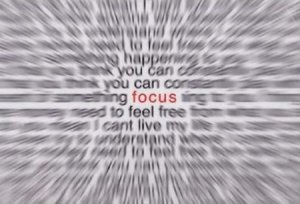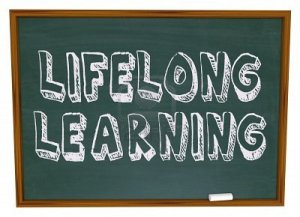This is our first guest post and is contributed by Ryan Rivera, and is an example of occasional posts by contributors on related topics. One of our key goals is to educate readers about the importance of and impact of wellness on lifelong learning. Ryan’s post is very relevant to lifelong learning as anxiety must be managed by many of us to achieve our goals and strive for our dreams.
Your brain is an incredibly powerful organ, and one that is more complex than even research gives it credit for. But as powerful as it is, it can also be very sensitive, especially to your emotions and your mental health.
Learning and Anxiety
Your brain, of course, is your most important tool for learning. It is also extremely affected by anxiety. Anxiety, which affects millions of people in the United States alone, is so powerful that it can shut off some parts of your brain completely. It also causes many different issues that affect learning, including:
- Fatigue – Perhaps the biggest problem with anxiety is fatigue. Anxiety is very draining both mentally and physically, and yet you need energy if you hope to learn and stay active in life. Without that energy, there is simply no way to keep yourself motivated or focused on the world around you, let alone any classes or personal learning activities you undertake.
- Distracted Thinking – Similarly, your mind can only focus on a select number of items at any given time. So when you have anxiety, your ability to focus on other items decreases. Anxiety can clog all of your thoughts and prevent you from seeing and remembering everything in front of you, causing many issues with lifelong learning.
- Memory Loss – On a physical level, anxiety and stress can actually prevent the creation of new memories and trigger memory loss. It’s not entirely clear why this occurs, but many studies have confirmed that those with chronic anxiety lose memories more than those with no anxiety at all.
- Poor Priorities – It’s not just the effects of anxiety either. Anxiety can also simply cause you to have worse priorities than you would otherwise. For example, you may be so anxious that all you want to do is go to the doctor or stay home and watch TV instead of embark on some type of learning excursion.
- Negative Thinking – Finally, anxiety causes negative thinking as a side effect of long term stress. People’s emotions become more negative in a way that you may not even realize – in a way that feels natural. Negative thinking has a strong impact on learning.
Anxiety is an overwhelming condition, and one that is often very physical. But it’s also much more than that. It’s an emotion and an experience that affects your mind in numerous ways, from shutting down some parts of your brain to taking over other parts. When you suffer from long term anxiety, you’re preventing lifelong learning.
Learning as a Treatment
What’s interesting, however, is that lifelong learning can also be an anxiety treatment. The more you engage in learning activities and try whatever you can to expand your own personal experiences, the more your mind can’t focus on anxiety and learns to be more optimistic. So while anxiety prevents learning, learning can prevent anxiety.
That’s why it’s not just about controlling anxiety. It’s also about making sure you’re making yourself learn at the same time. You need to stop your anxiety as best you can, but if you can also get yourself out there and use your mind on a daily basis, you can also help yourself control your anxiety in the future.
About the Author: Ryan Rivera tries to continue learning on a regular basis, formally and informally. He has a website about anxiety recovery at www.calmclinic.com.









